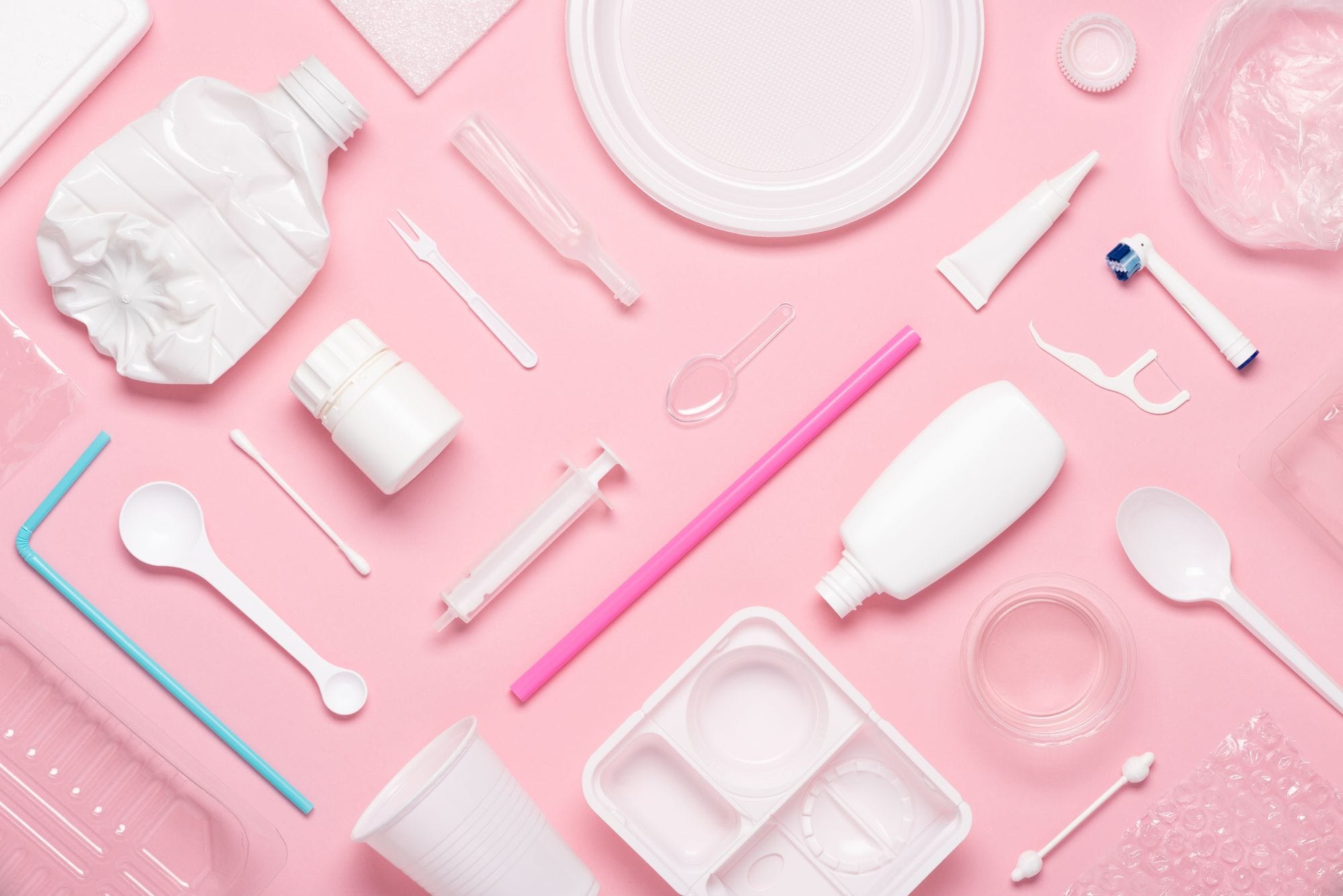Happy Earth Day!
Today, like every day, it’s important to consider your impact on the environment and the changes you can make to reduce waste and keep the planet healthy.
For many of us, the easiest changes are to purchase reusable alternatives for disposable products – like water bottles, lunch containers, and other plastic products.
When purchasing these products in the past, you might have noticed a label claiming that it was “BPA free.”
But what is BPA, and do you need to be worried about it?
What Is BPA?
BPA stands for bisphenol A, and is a synthetic compound chemical that manufacturers use to create many commercial products, including canned goods, menstrual hygiene products, and household electronics.
In particular, BPA helps make strong, durable plastics that are beneficial for the consumer’s use of the product… but some research suggests that BPA may cause harm if ingested.

BPA and Its Risks
Research surrounding BPA is controversial – some say that’s safe to use, while many experts claim that BPA is harmful.
BPA can mimic the structure and function of estrogen, a hormone that can influence numerous body processes like reproductive health, energy levels, growth and development, and cell repair.
According to Healthline, many studies show that BPA can affect our health in more ways than one.
- Some studies suggest that BPA could affect infertility in both men and women. One study showed that women who suffered from frequent miscarriages had BPA levels in their blood that were three times higher than women who did not suffer from miscarriage. Other research showed a correlation between a lower sperm count and higher BPA levels.
- BPA can have a negative effect on infant growth and development. One study showed that babies born to mothers with higher BPA levels had a lower birth weight, and many more are available to corroborate it.
- Another study showed that women who are obese may have BPA levels that are 47% higher than women of a healthy weight. Other studies suggest that people with high BPA levels are more likely to be obese.
- One study found that people with higher BPA levels have a risk of type 2 diabetes 68% to 130% higher than those with lower BPA levels.
However, some research conflicts with the findings above. Studies by the Food and Drug Administration (FDA) found that BPA had minimal effects on laboratory rats, even at high doses. The FDA also declared BPA safe to use in small doses.

Which Products Contain BPA?
You can find BPA in many products, including:
- Canned goods, since the lining of the cans often contains BPA
- Certain toiletries and menstrual hygiene products
- Items packaged in plastic containers that contain BPA
- Eyeglass lenses
- CDs and DVDs
- Electronics and sports equipment
Many of these items that contain BPA do not pose a risk to our health, since BPA mainly enters your body through your diet. BPA particles can break off into your food or liquids, entering your body when you ingest them.
While we may associate BPA with reusable water bottles and plastic containers, many of these products manufactured after 2012 do not contain this chemical compound.
You should check the label to ensure that a product is BPA-free, but for the healthiest lifestyle, stay away from packaged foods. Stick to whole, fresh ingredients to create fresh, non-processed meals free from chemicals like BPA.
In summary, most reusable plastic containers and water bottles are not likely to contain BPA, thanks to the work of federal and state agencies across the country. The debate on the safety of these products is ongoing, but a large amount of research suggests that BPA may cause health issues if ingested.
Remember to check the label, and stay healthy!





